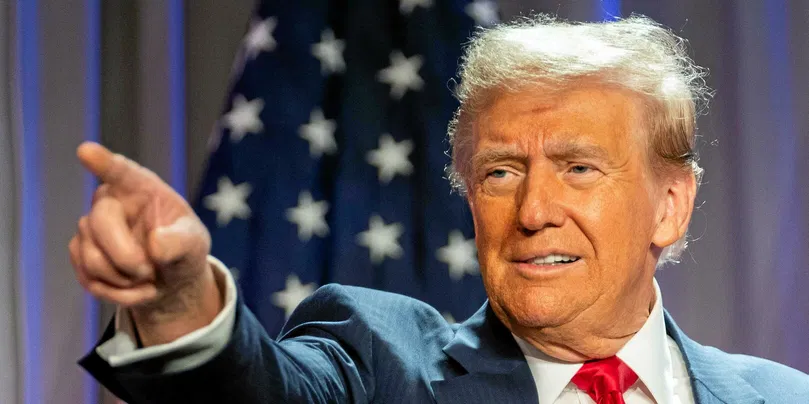Washington DC (TDI): In a significant development in transatlantic trade relations, President Donald Trump has agreed to extend the deadline for tariff negotiations with the European Union to July 9, following a “very nice” conversation with European Commission President Ursula von der Leyen.
This extension, originally set for June 1, aims to allow more time for both sides to resolve ongoing disputes regarding tariffs on EU goods.
The move follows a month of tension sparked by Trump’s initial announcement of a 20% import tariff on most EU goods, later reduced to 10% to facilitate negotiations.
Good call with @POTUS.
The EU and US share the world’s most consequential and close trade relationship.
Europe is ready to advance talks swiftly and decisively.
To reach a good deal, we would need the time until July 9.
— Ursula von der Leyen (@vonderleyen) May 25, 2025
On Friday, expressing dissatisfaction with the pace of talks, President Trump threatened to raise the tariffs to 50% by June 1.
However, Sunday’s announcement marked a shift toward diplomacy, with both leaders agreeing that more time is needed to reach a mutually beneficial agreement.
In a statement on social media, von der Leyen emphasized the EU’s commitment to swift and decisive talks, writing, “To reach a good deal, we would need the time until July 9.”
President Trump’s acceptance of this new timeline signals a willingness to pursue a constructive path forward, aligning closely with the previously set July 8 deadline before heightened tariff threats.
The ongoing dispute centers on what President Trump views as an imbalance in trade, highlighting the EU’s $600 billion in exports to the U.S. compared to $370 billion in U.S. exports to the EU.
Read More: Trumps Threatens EU, Apple with New tariffs, Sparking Trade Fears
Trump argues that tariffs are a necessary tool to protect American manufacturing and jobs, while critics warn they could lead to higher consumer prices and global economic instability.
Despite earlier pauses on some proposed tariffs, the U.S. maintains a 25% tariff on EU steel and aluminum. Meanwhile, the EU has responded cautiously, placing on hold its own retaliatory 25% tariff on €18 billion worth of U.S. goods and consulting on further measures totaling €95 billion.
European leaders, including those from France and Germany, continue to call for a diplomatic resolution, stressing that escalation would damage both economies.
EU Trade Commissioner Maros Sefcovic reaffirmed the bloc’s readiness to negotiate a fair and balanced trade deal based on mutual respect.
As the July 9 deadline approaches, both sides remain under pressure to reach a deal that avoids further economic disruption and strengthens transatlantic ties.
Areeba Kanwal is a contributor at The Diplomatic Insight and has passion for International Relations and diplomacy.



